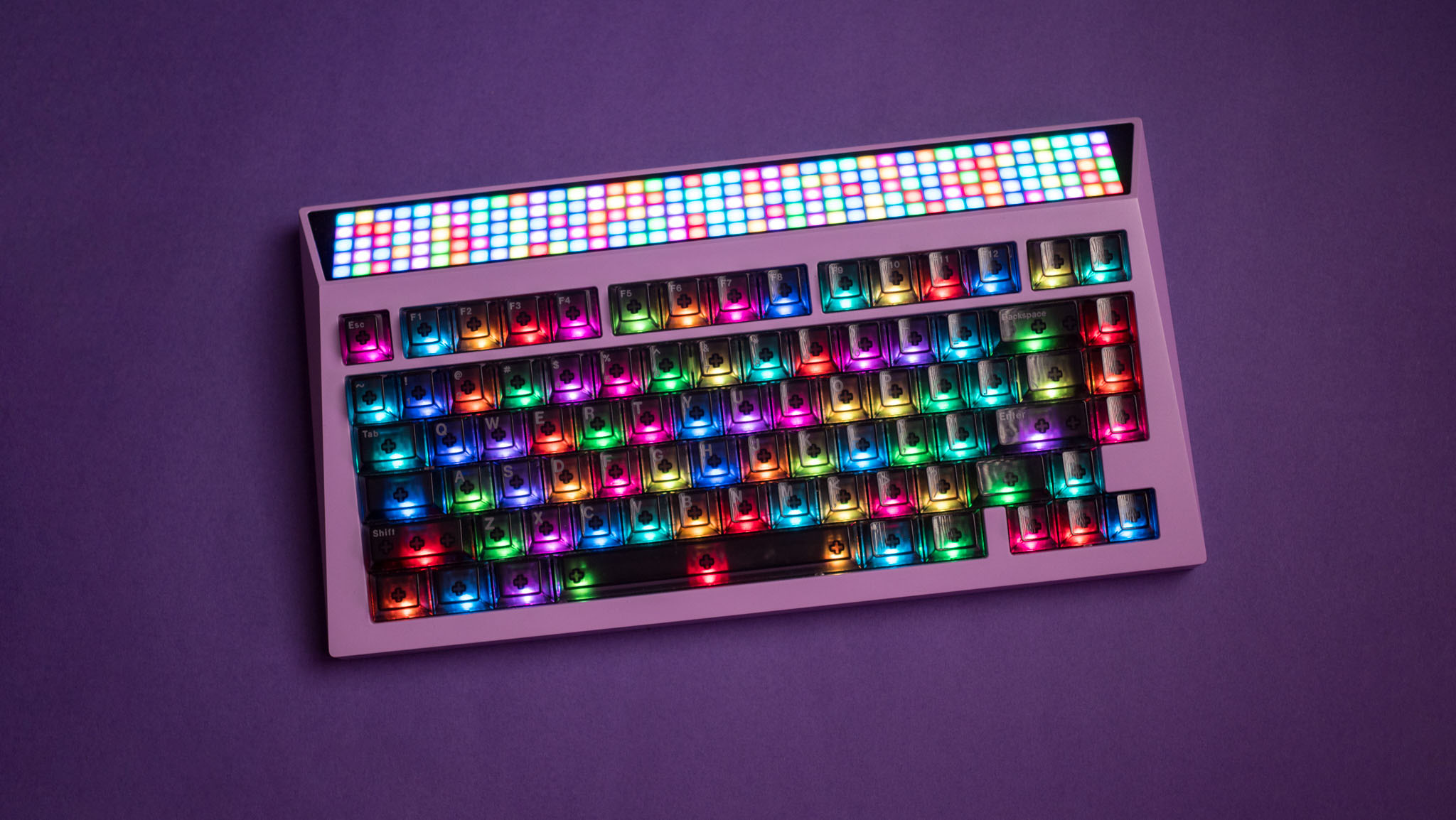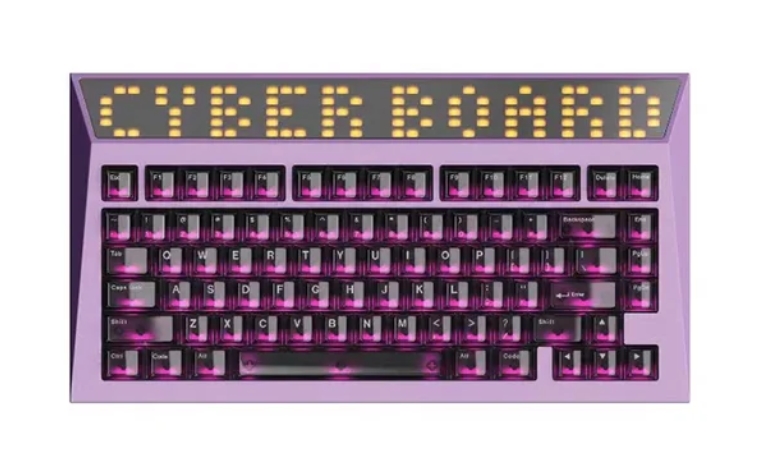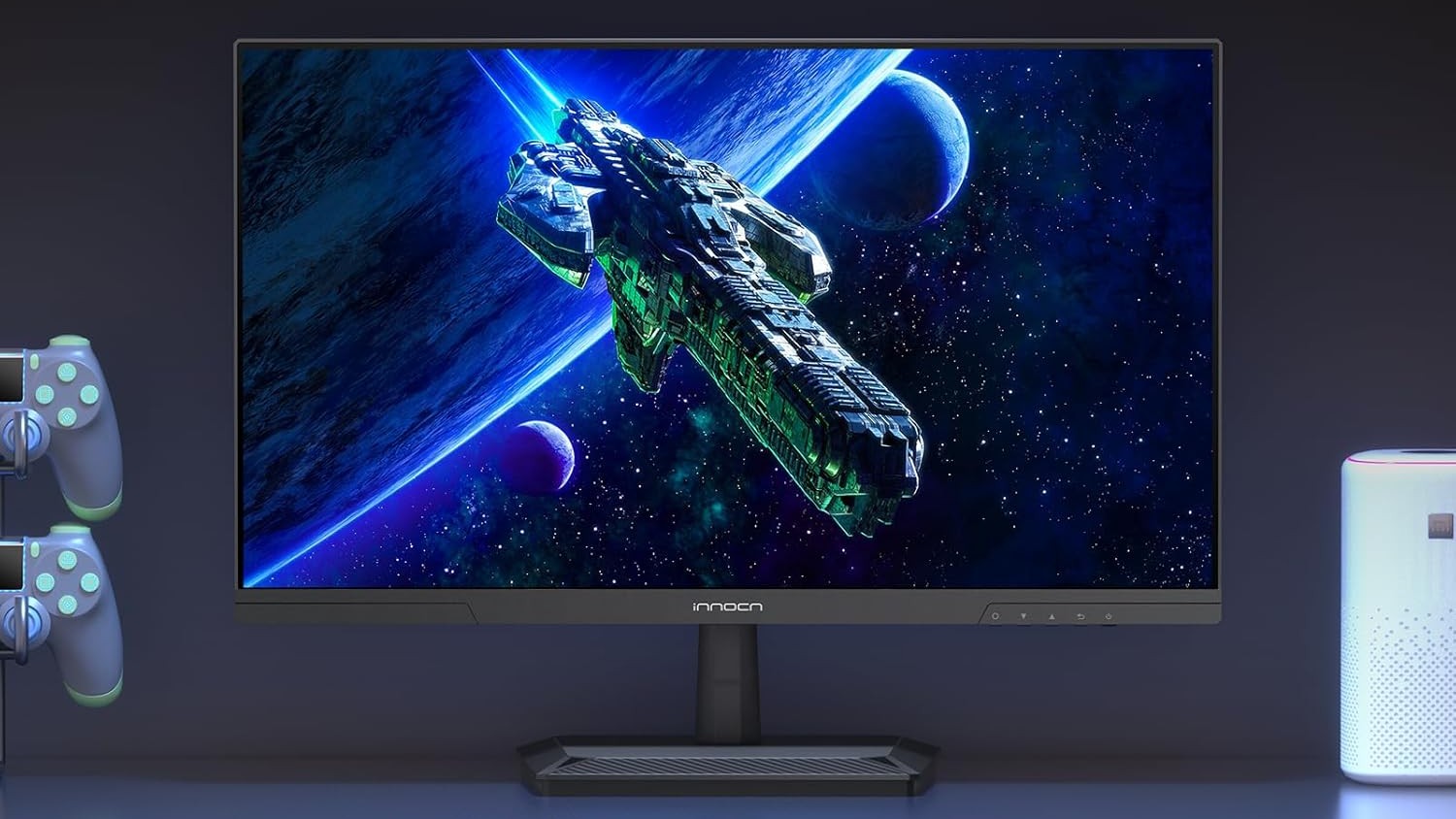Windows Central Verdict
The Cyberboard R4 is unlike any other keyboard you can buy today; the design is inspired by Tesla's Cybertruck, and you get an LED matrix panel at the back that's highly customizable. It is the costliest keyboard I have used by a considerable margin, and while I wouldn't call it a good value, it has an outstanding typing experience that is noticeably different from every other keyboard I used thus far. It is also highly customizable, has a unique Leaf Spring mounting system that changes the feel of the keyboard, has Bluetooth 5.1 connectivity, and has a 10000mAh battery that lasts weeks. If you like the look of the keyboard and don't care about the $750 asking price, the Cyberboard R4 is magnificent.
Pros
- +
Unique styling
- +
Unmatched typing experience
- +
Outstanding build quality
- +
Highly customizable
- +
Bluetooth 5.1 connectivity
Cons
- -
Absurdly costly
- -
AM Master software is finicky
Why you can trust Windows Central
Angry Miao is a boutique keyboard manufacturer based out of China, and it is known for its unique designs that stand out from every other brand. That's evident when you take a look at the Cyberboard R4; the keyboard's design is inspired by the Tesla Cybertruck, and it has angular lines and a large LED matrix display on the back.
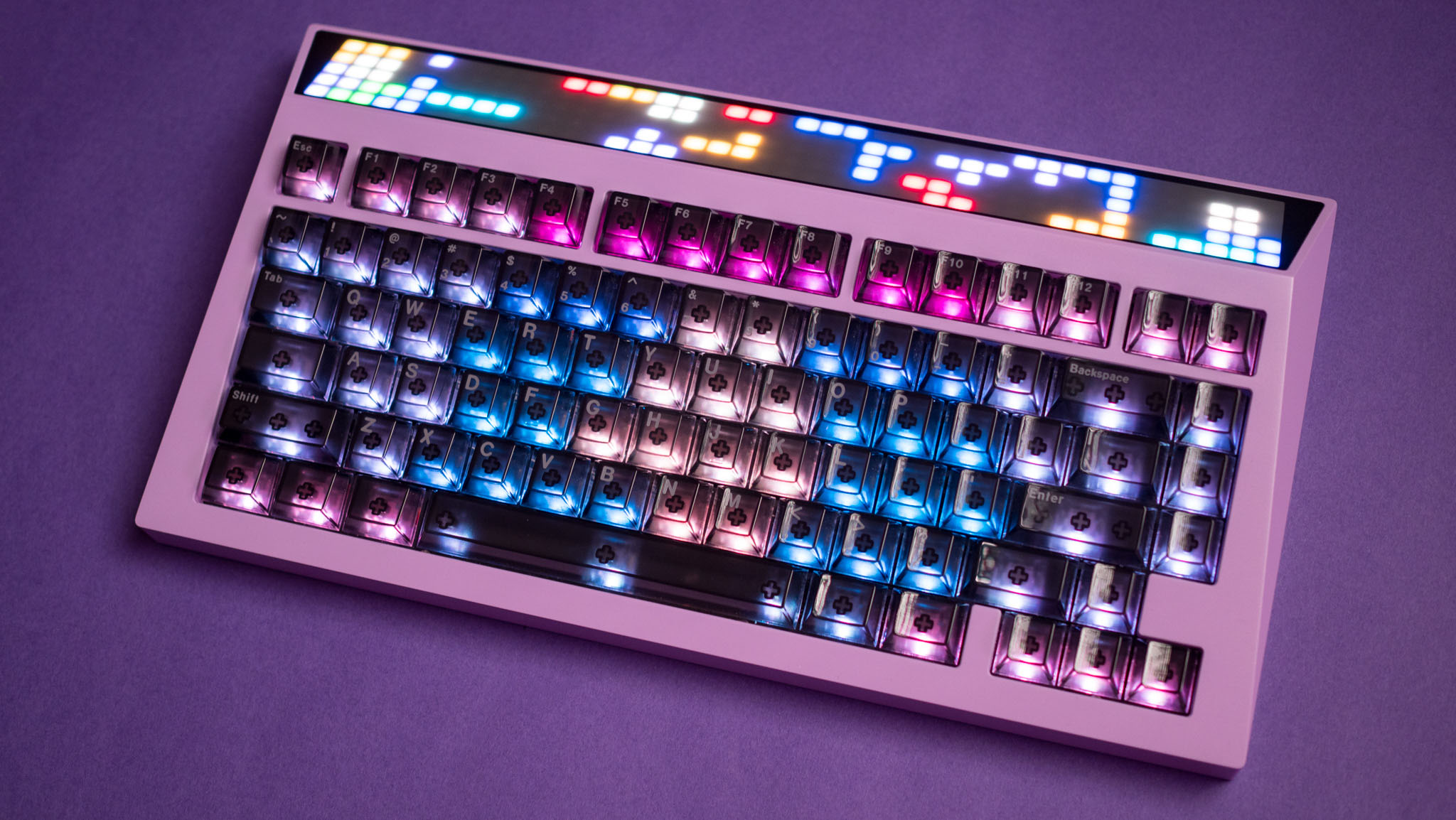
1. Pricing and availability
2. Design
3. Features
4. Performance
5. The competition
6. Should you buy it?
I used a lot of keyboards in the last 18 months, but nothing comes close to the sheer ridiculousness of the Cyberboard R4. Obviously, the design has a lot to do with that, but the Cyberboard isn't just about the aesthetics; the keyboard has the best typing experience of any mechanical keyboard I used, and Angry Miao bundles a ton of accessories that allows you to tweak the sound of the Cyberboard R4.
It also has Bluetooth 5.1 connectivity, a massive 10000mAh battery that's designed to last weeks between charges, and there's even a wireless charging coil on the underside, and that's something you don't see on many keyboards.
All of this isn't cheap: the Cyberboard R4 costs $745 for the full kit that includes the keyboard, switches, and keys. That's exponentially costlier than most mechanical keyboards — if anything, that's in line with GPU pricing. Even if you're willing to plonk down that much cash on a keyboard, Angry Miao sells its keyboards in limited runs, and once the batch is sold out, that's that.
I used the Cyberboard R4 for just over six months now, and I can confidently say that I don't see myself switching to any other keyboard — this is on an entirely different level from the best mechanical keyboards.
Angry Miao Cyberboard R4: Pricing and availability
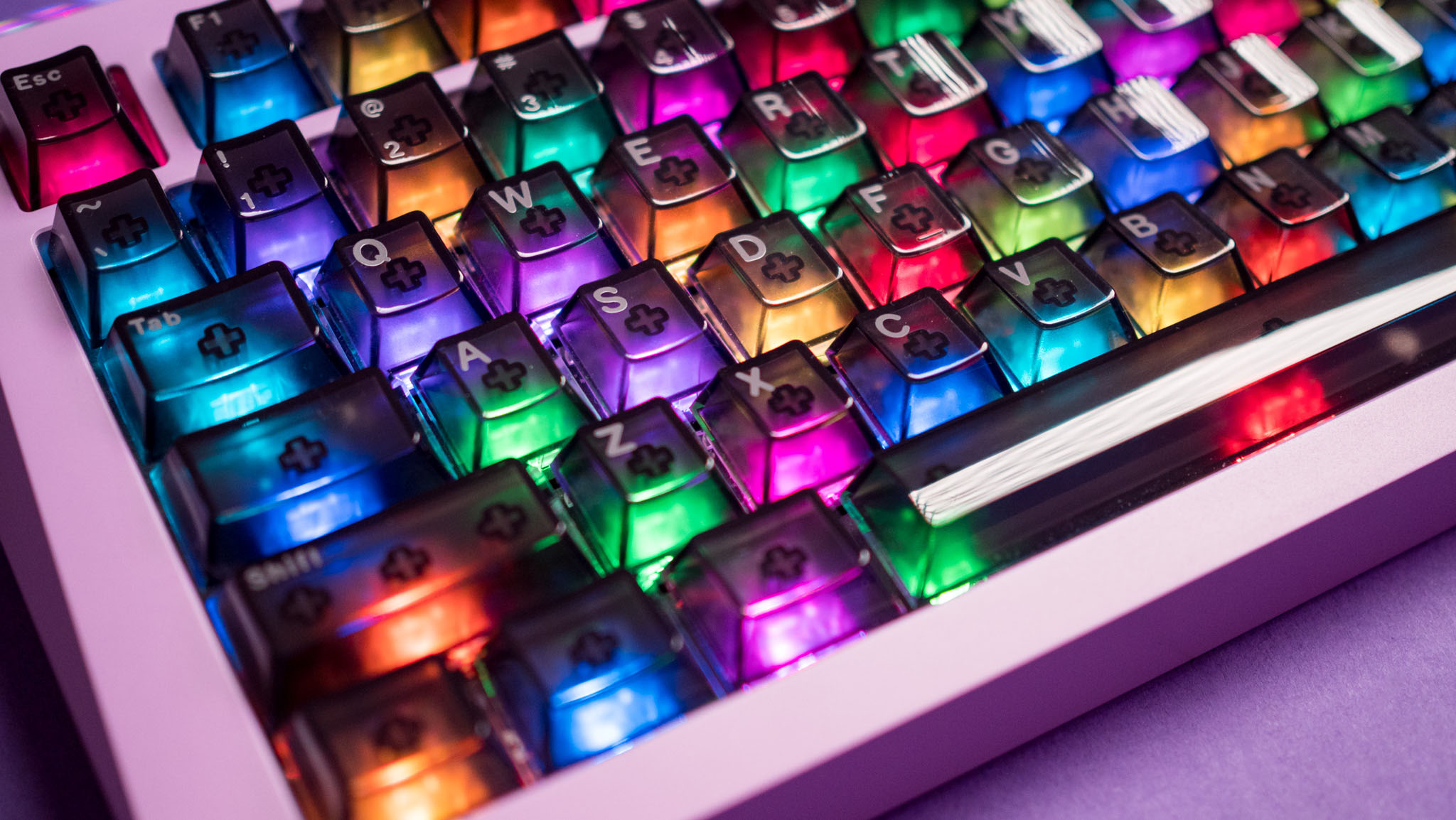
Angry Miao unveiled the Cyberboard R4 in October 2023, and the Gangstar variant I'm testing is sold out. The brand is now selling a Graffiti version of the Cyberboard R4 that retails for $830 for the entire kit and $670 for just the keyboard.
The kit includes the keyboard along with Angry Miao's custom Icy Silver Pro switches that cost $95 on their own, Glacier keycaps that have a see-through design, and Gateron's Ink Black stabilizers.
Angry Miao Cyberboard R4: Design
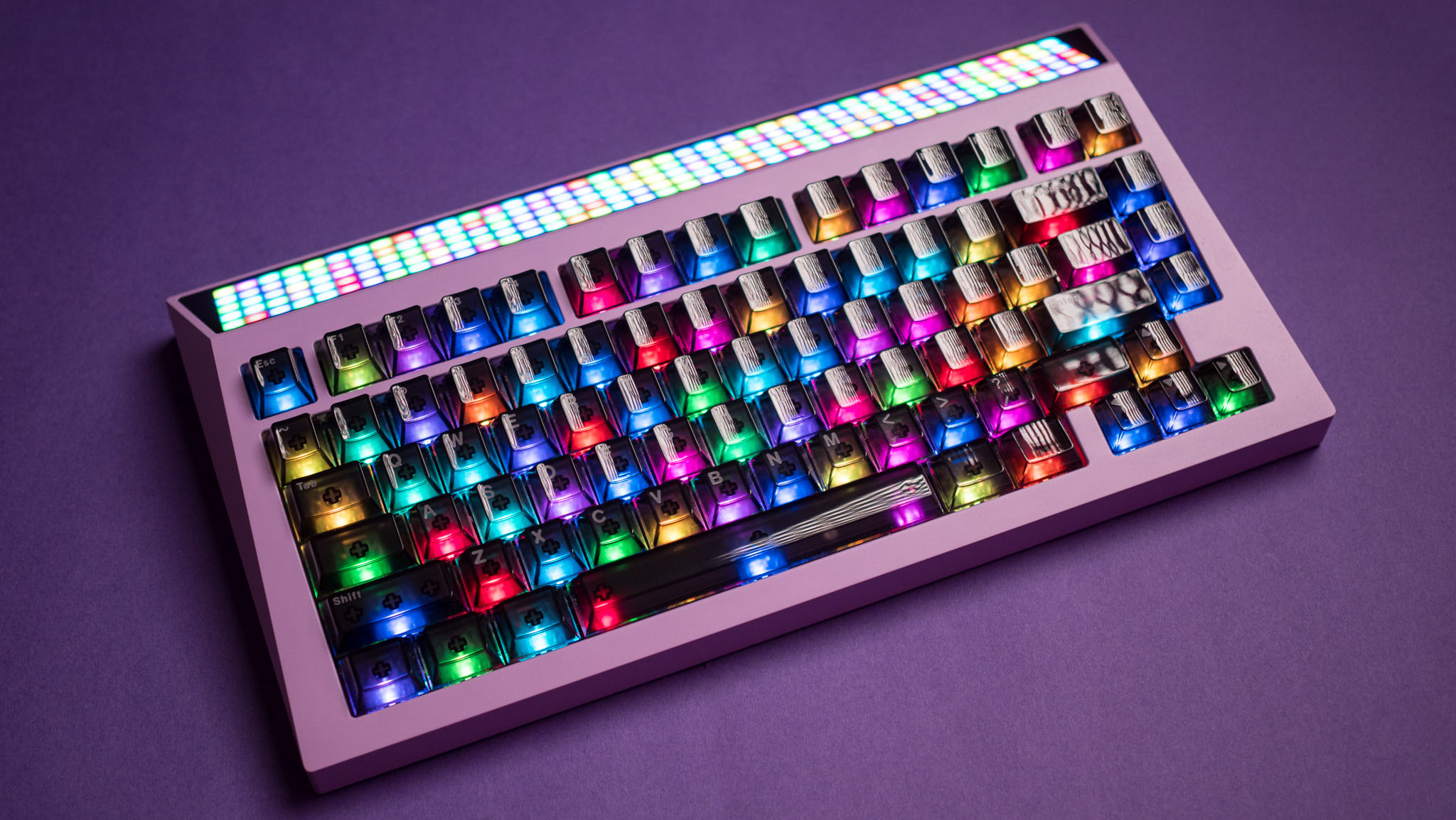
The Cyberboard R4 is the latest iteration in the Cyberboard series, and like earlier designs, the keyboard is inspired by the Cybertruck. That's clearly noticeable in the angular lines and the jagged edges, and as a result, the Cyberboard has a distinct presence that you just don't get with any other keyboard.
The design is functional; the keyboard sits at a 10-degree angle, and it is great for typing. The angle isn't adjustable, but it is comfortable in daily use, and I didn't see any problems in this area. The only quibble is that there's no wristrest bundled with the package.
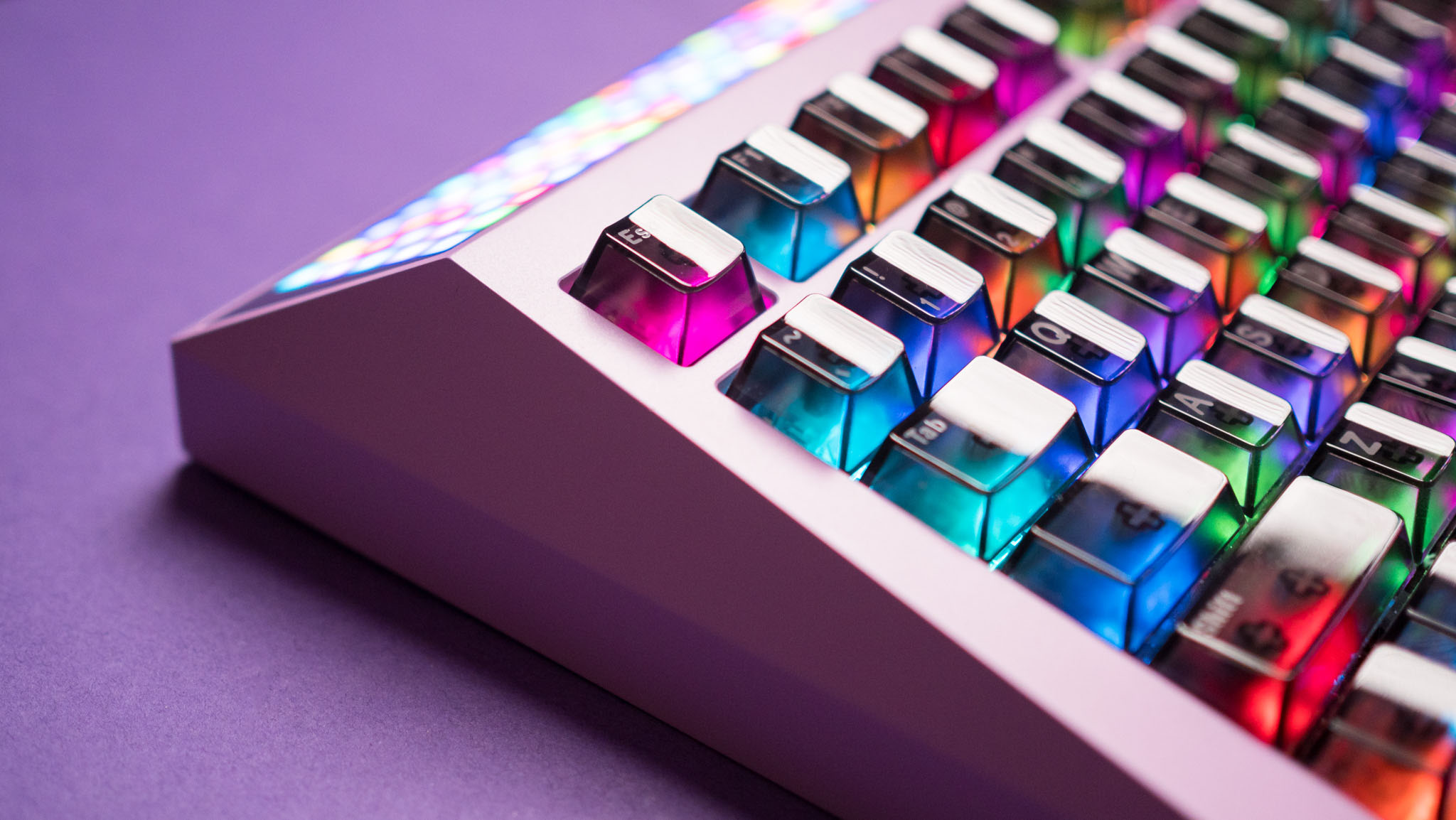
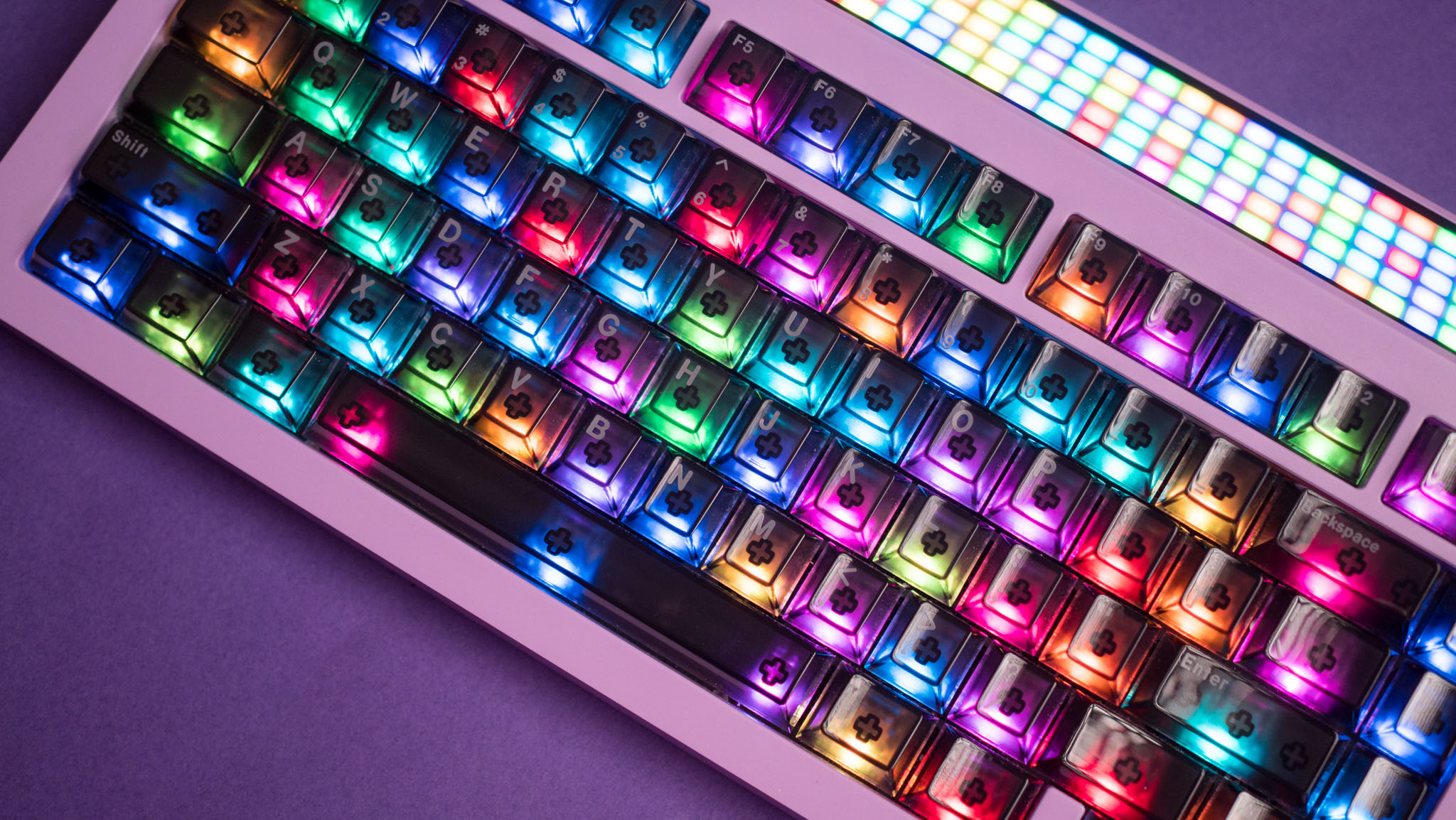
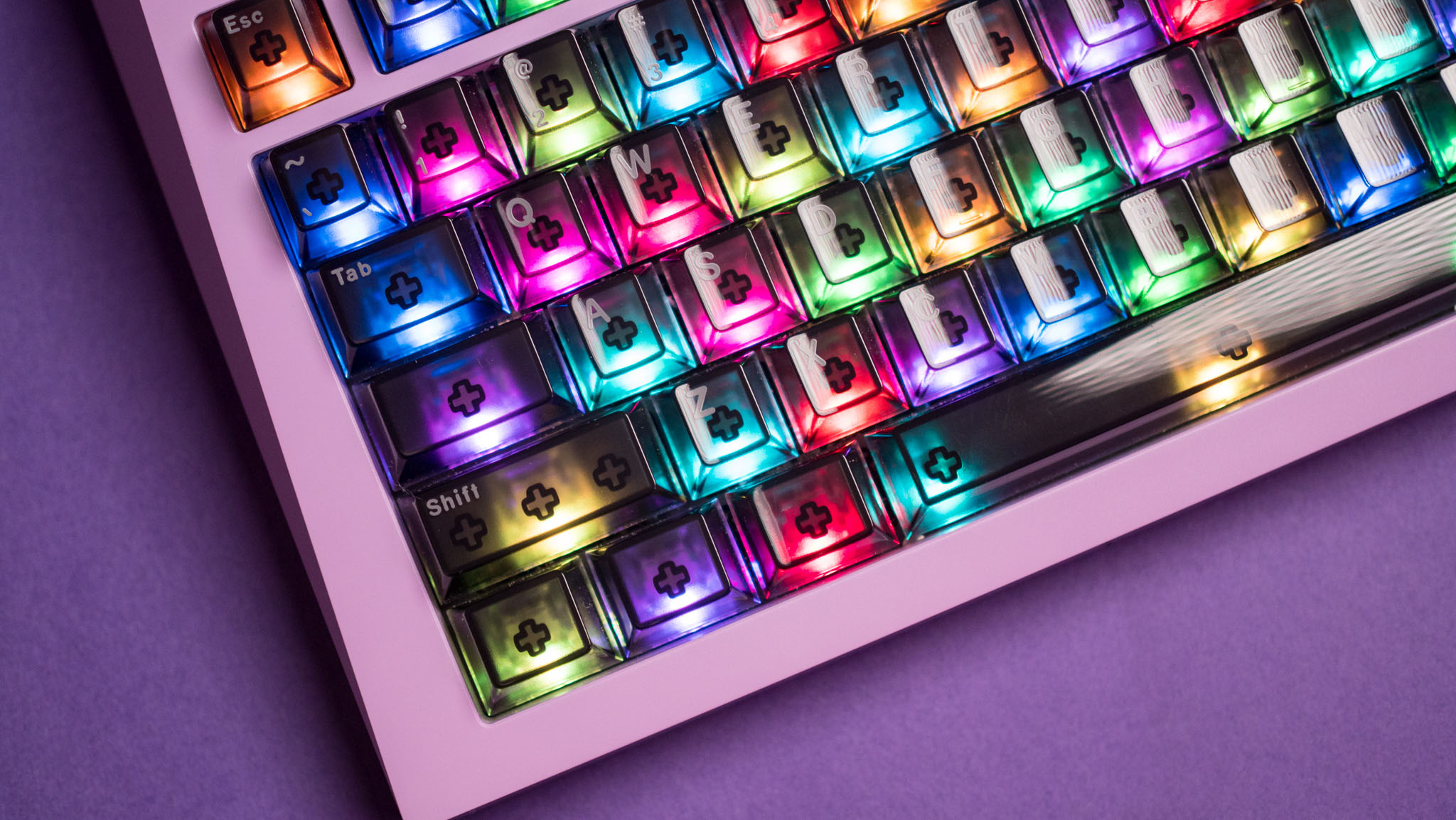
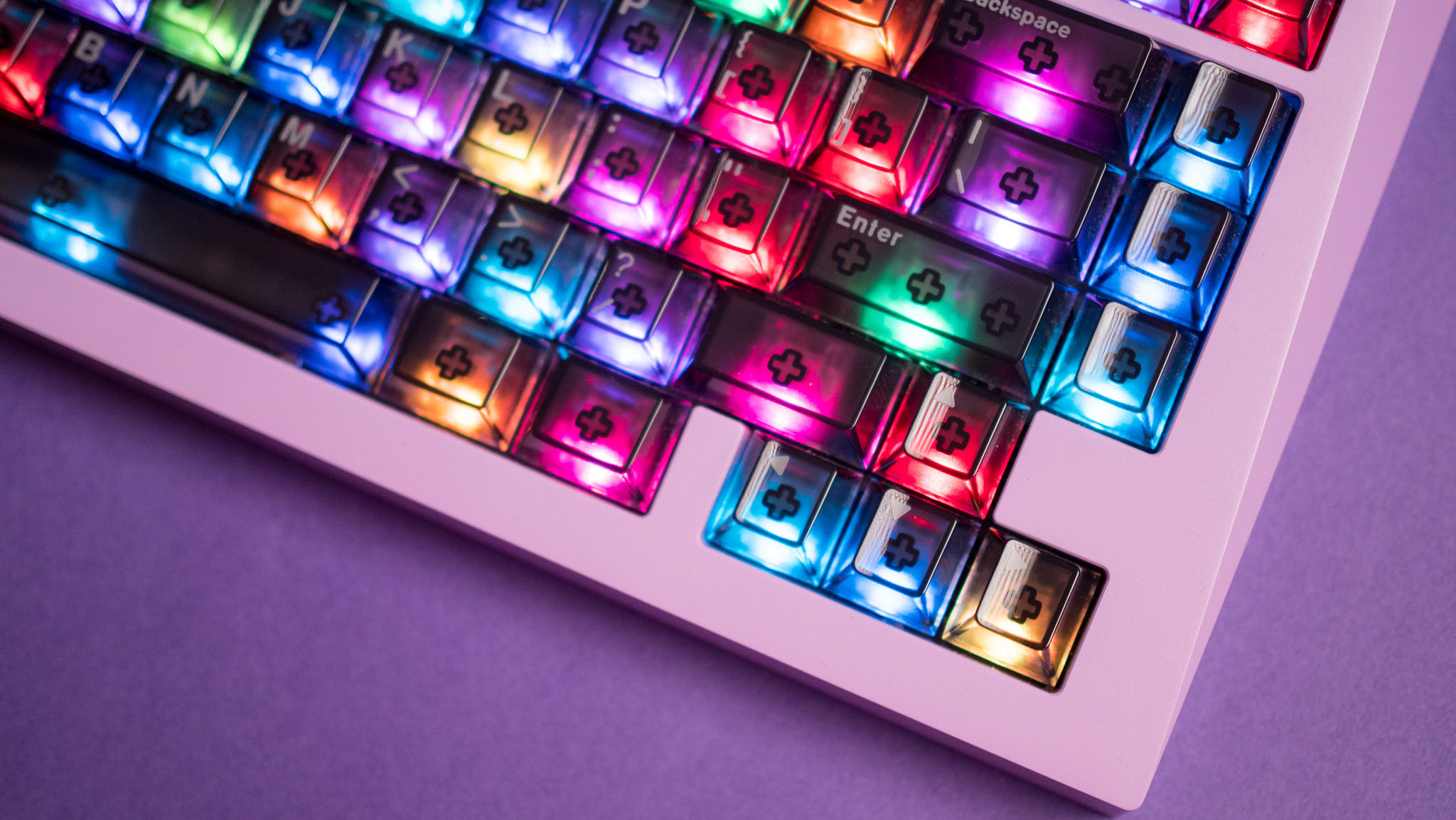
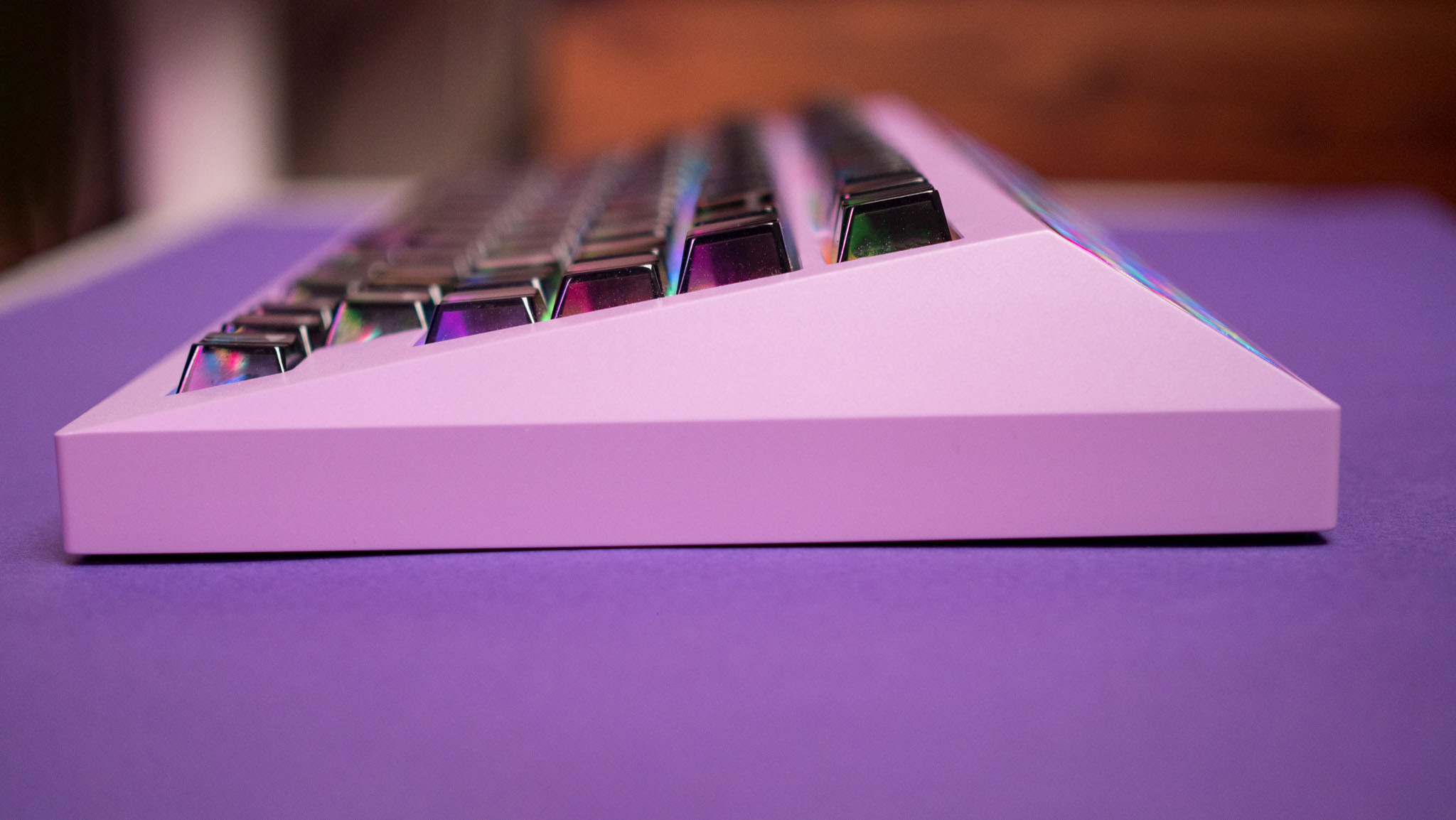
Angry Miao draws on pop culture to come up with its custom colorways, and the variant I'm using is inspired by JoJo's Bizarre Adventure manga. The Gangstar color option has a pastel purple hue, and if you want a design that stands out a bit more, you'll want to take a look at the recent Graffiti line.
The build quality is in a league of its own; I reviewed Keychron's Q6 Pro and a slate of other high-end keyboards, but the Cyberboard R4 just feels sturdier. It is constructed out of 6063 aluminum alloy, and it is heavy — the base keyboard alone weighs 6.3lb (2.9kg), and the bundle with the switches and the keys comes in at 7lb (3.2kg). Some of that weight is down to the massive 10000mAh battery housed within the chassis, but even without that, it's clear that this thing is built to last.
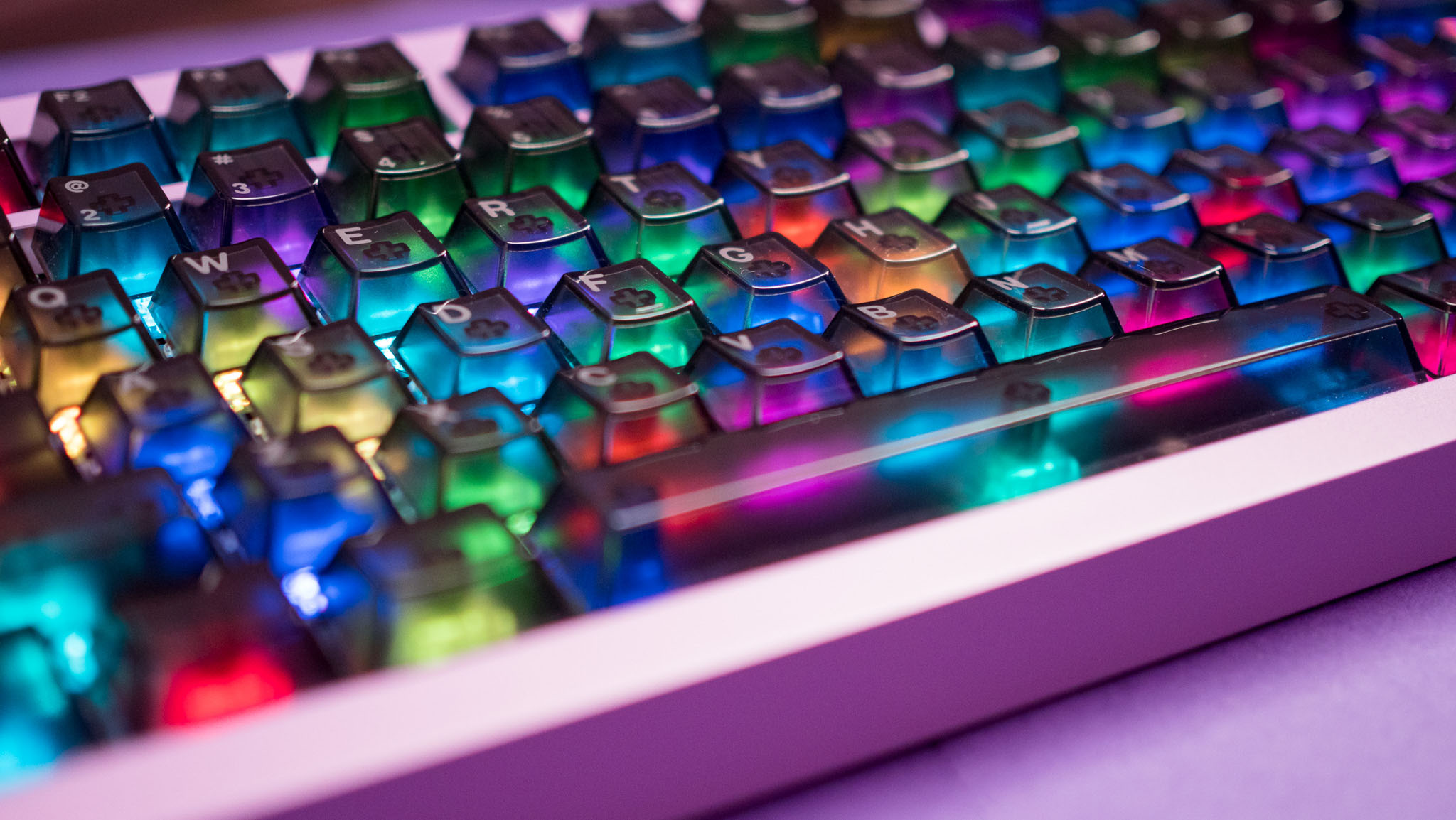
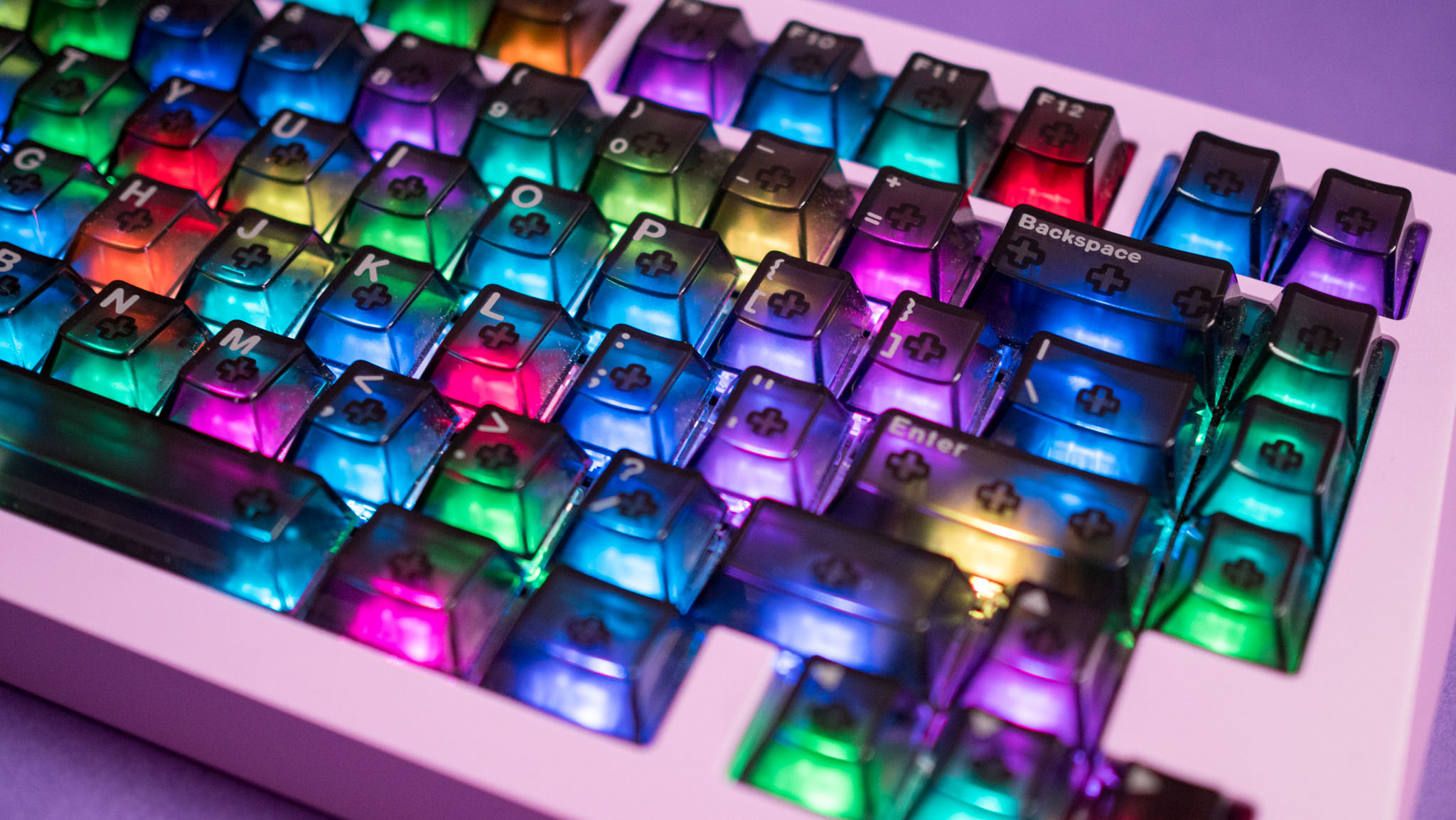
As a result of that weight, the Cyberboard R4 stays planted on a desk. It has rubber feet at the bottom, and there's even a charging coil integrated into the design that gives it a distinct advantage. On the whole, the custom styling combined with unique colorways allows the Cyberboard R4 to stand out against every other mechanical keyboard.
Angry Miao Cyberboard R4: Features
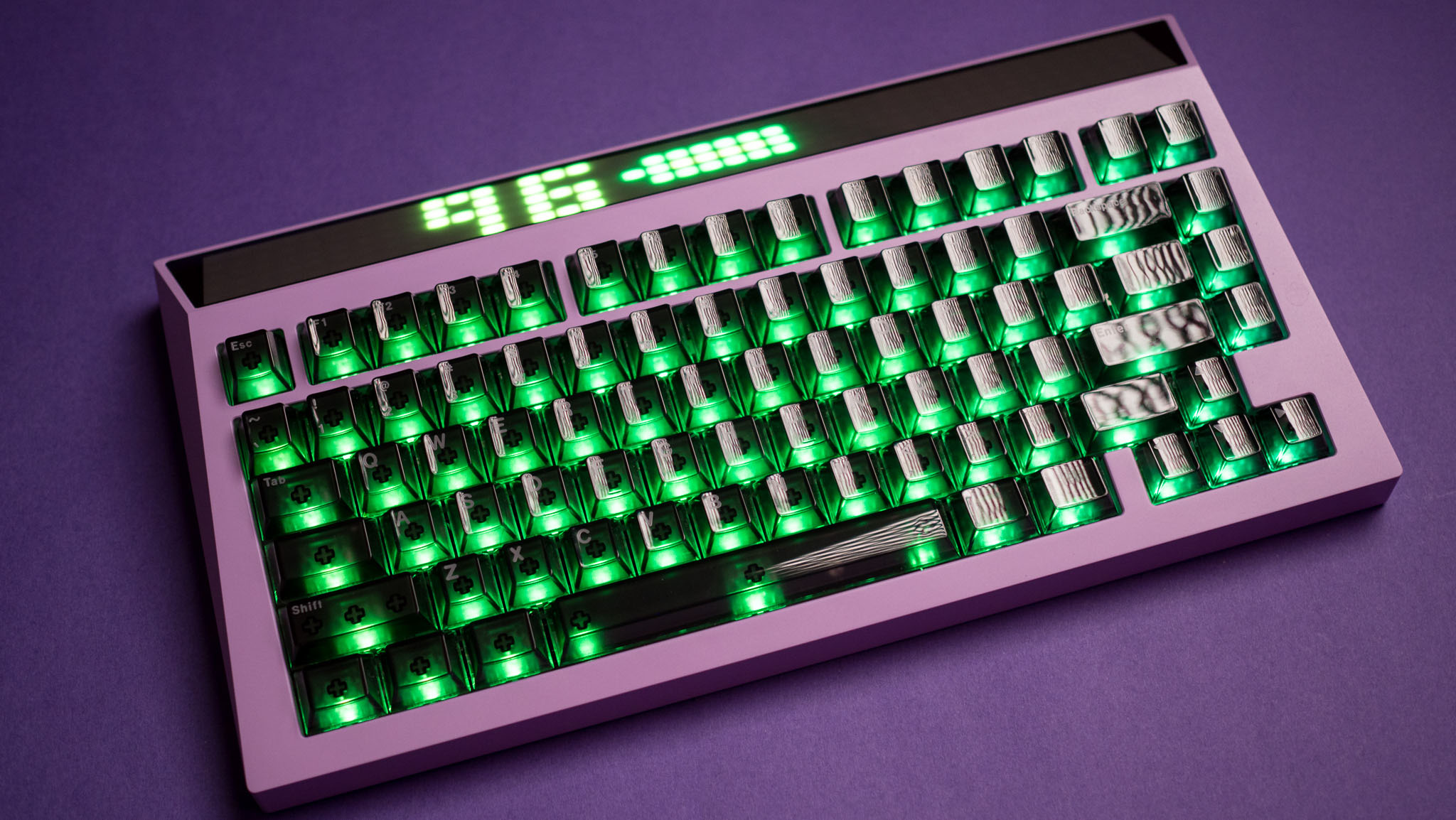
While design is a key contributor to the Cyberboard R4's uniqueness, it has plenty of features. The keyboard has standard USB-C connectivity, and there's also Bluetooth 5.1 that lets you connect with up to three devices at once. Bluetooth connectivity is rock-solid, and I didn't see any issues when using the keyboard with my iPad Pro 12.9.
The keyboard has several layers of foam to reduce acoustic resonance, and while Angry Miao isn't unique in doing so, the quality of the foam used is markedly different to other brands. This allows the Cyberboard R4 to have a unique sound profile, and the difference is noticeable when switching to another keyboard.
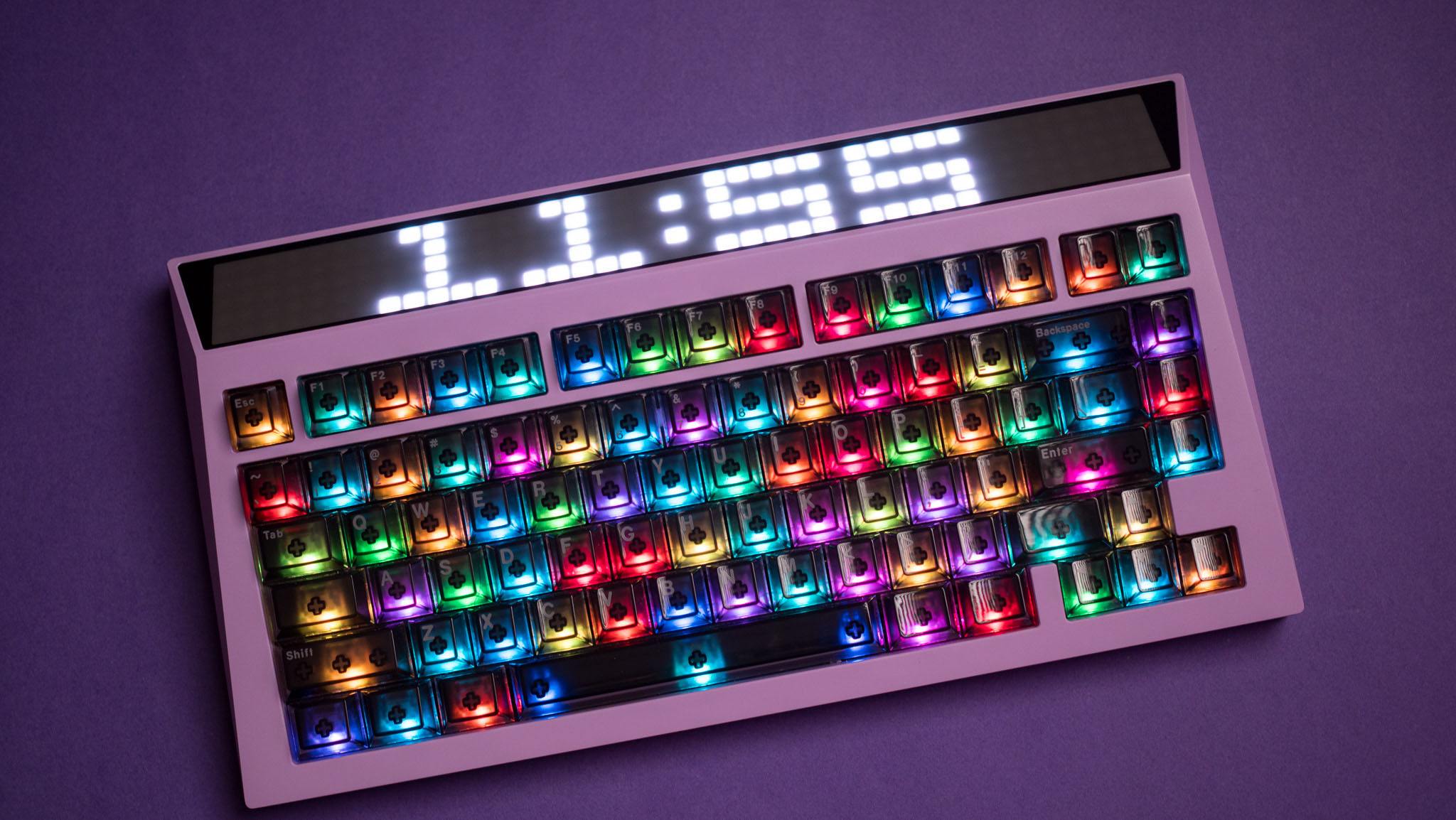
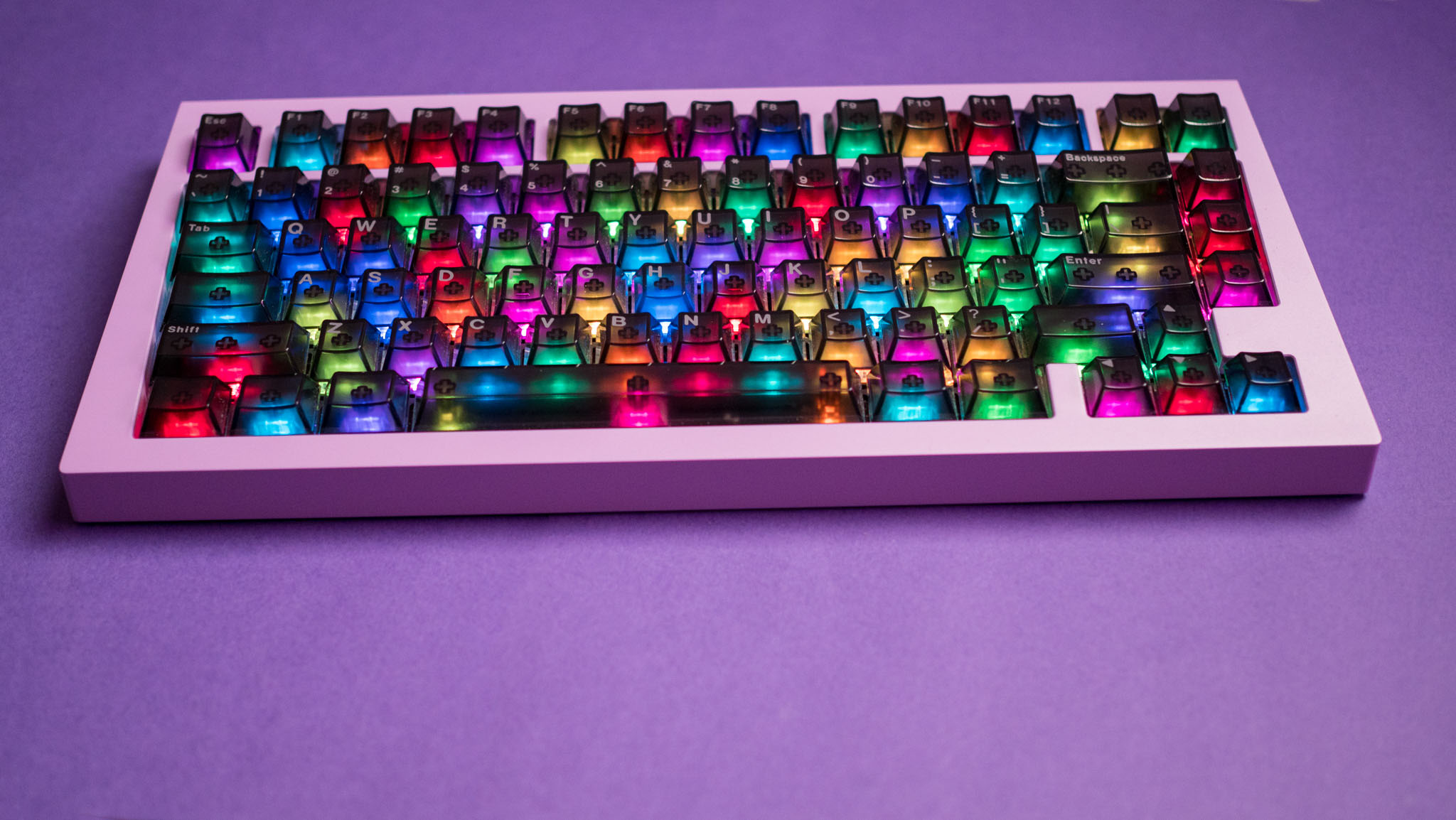
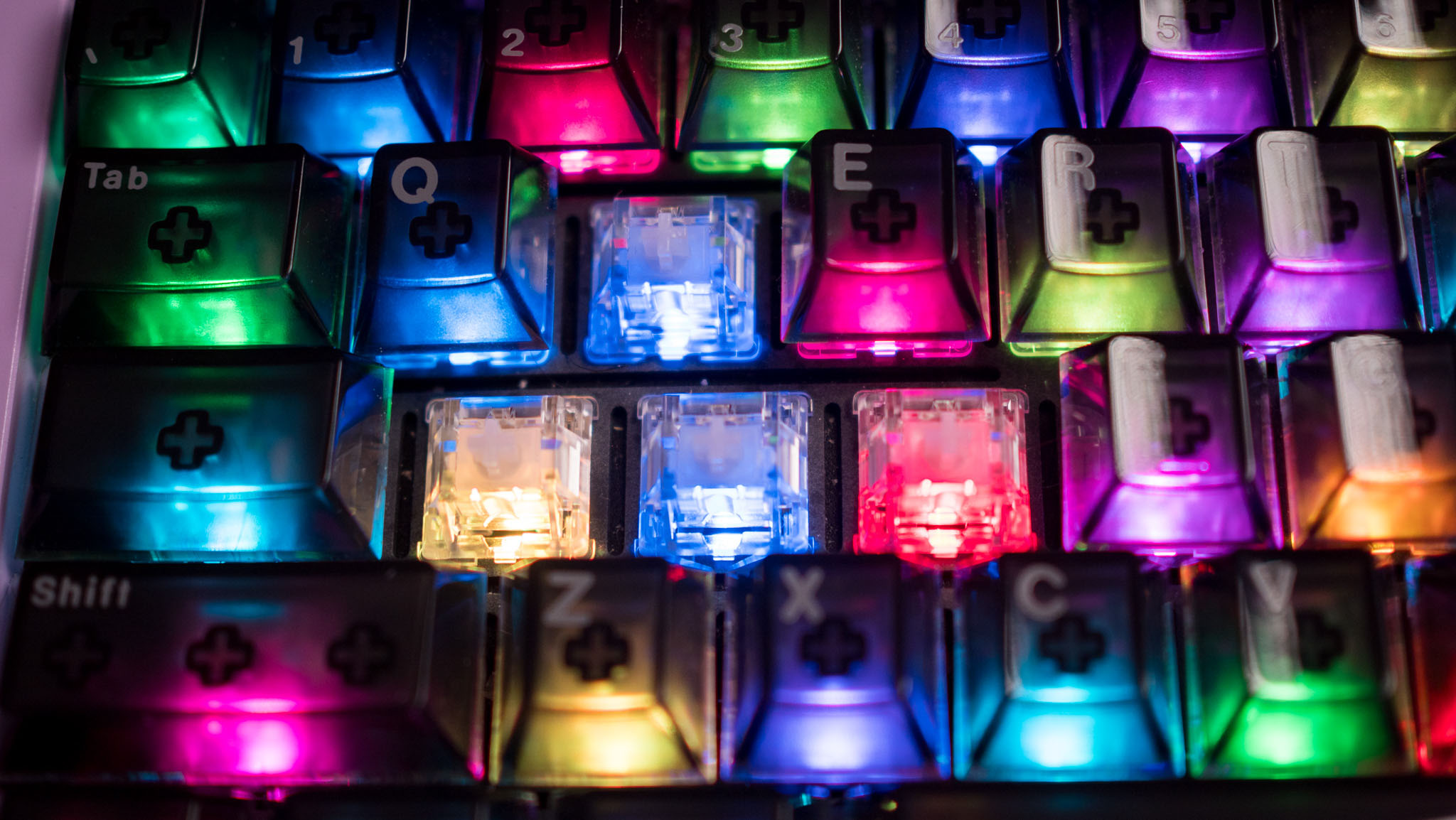
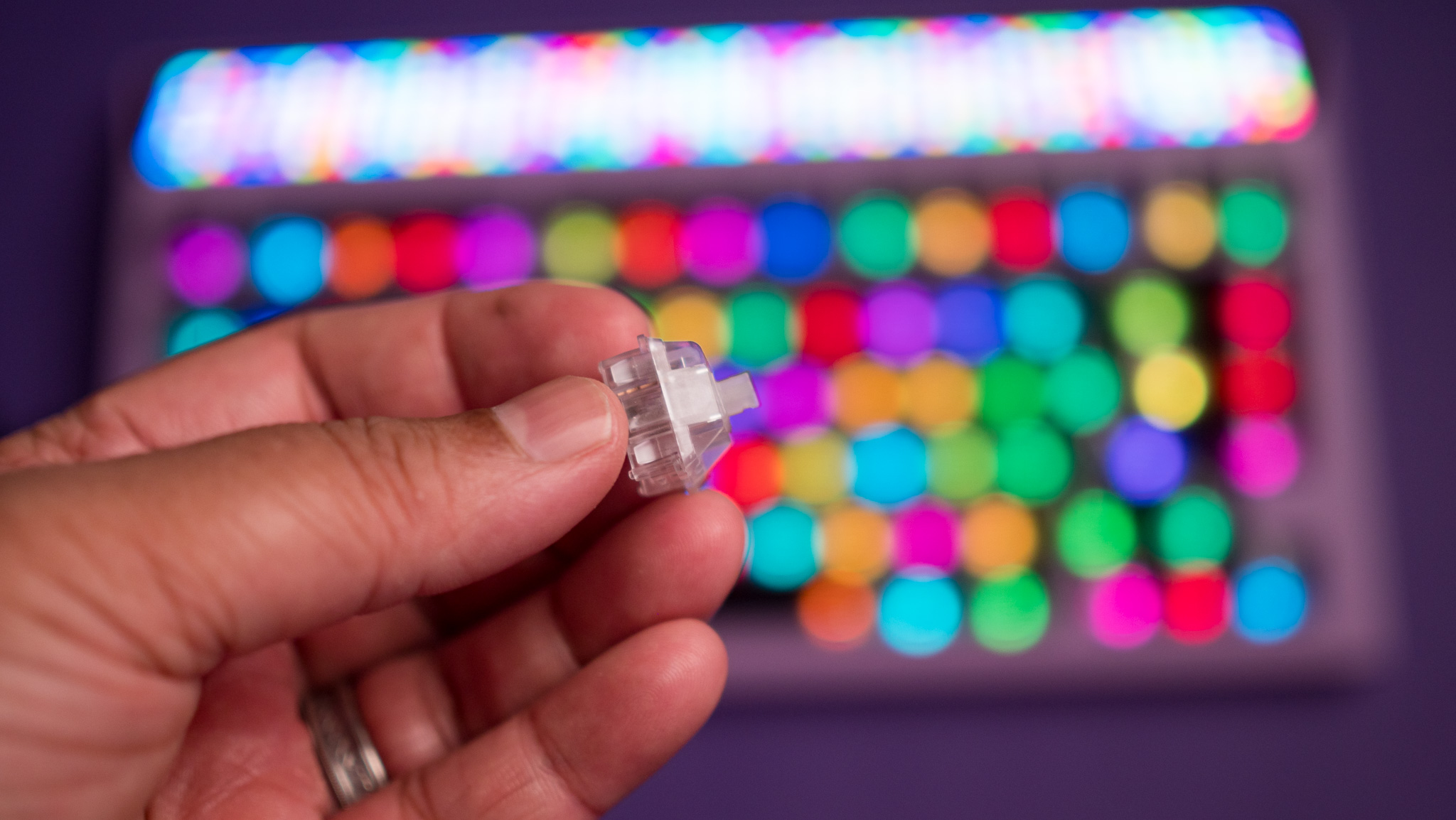
Another differentiator is the Leaf Spring mounting system, which is very different from the standard top plate mount or even the gasket-mounted designs that most high-end keyboards use these days. The Leaf Spring mounts give you greater flexibility in adjusting the overall feel of the keyboard, and like everything else with the R4, it is highly customizable — Angry Miao bundles several leaf springs with the base kit.
Then, there's the LED matrix panel on the back of the keyboard. It has 200 individually addressable LEDs, and you get a set of presets out of the box that take full advantage of the panel. The best part is that you can set up custom effects via Angry Miao's online configurator, and it is pretty straightforward to do so.
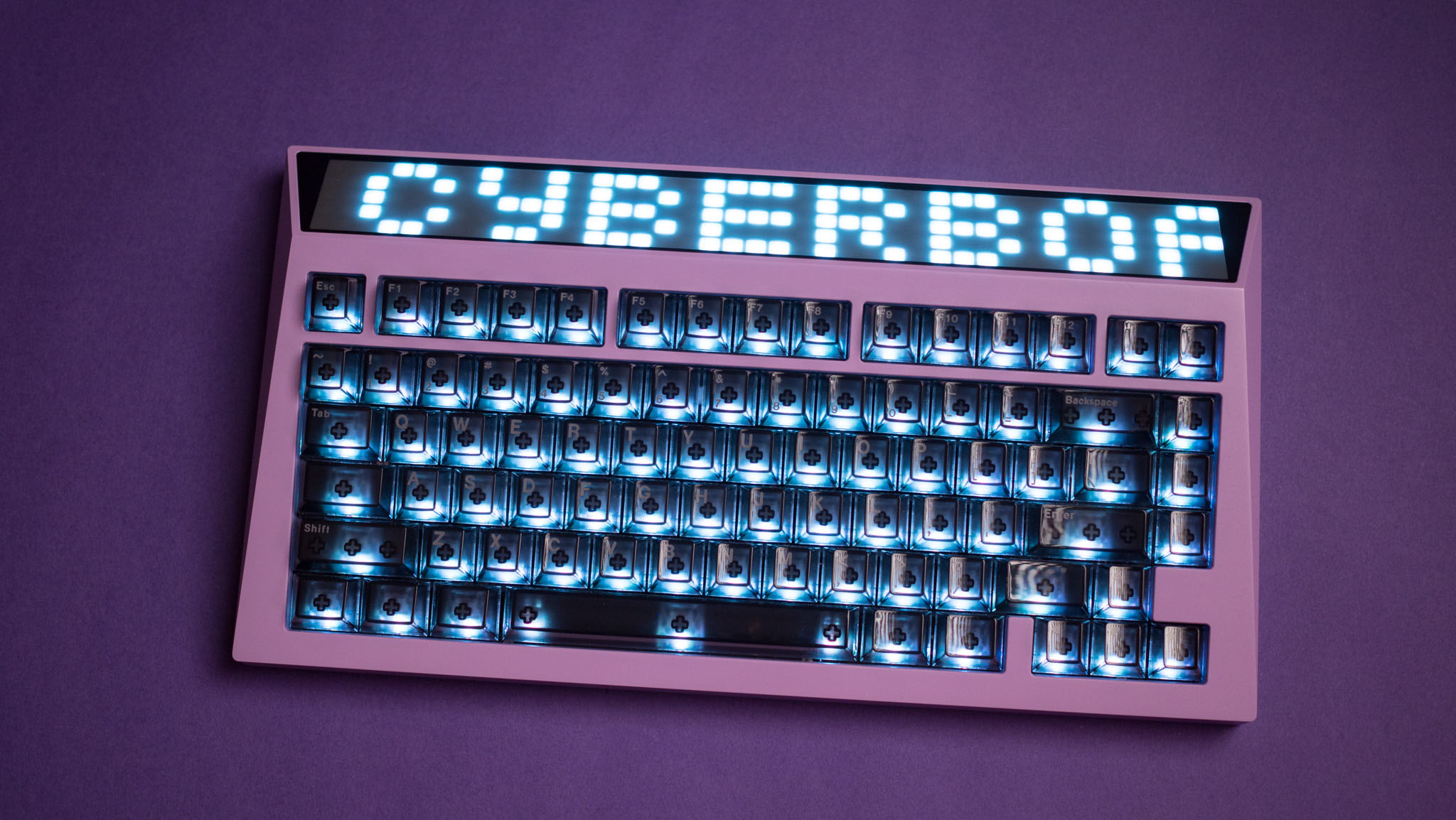
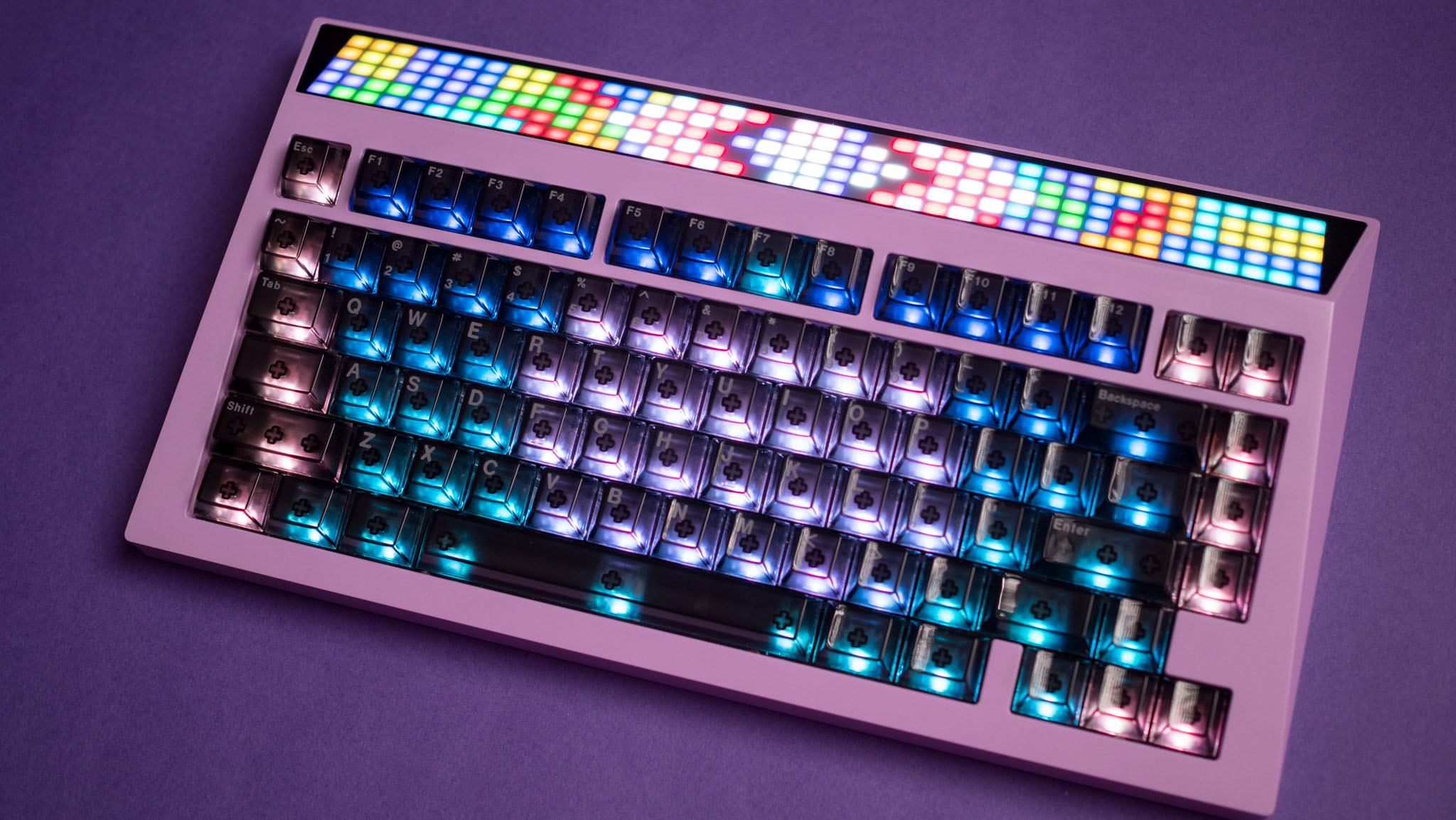

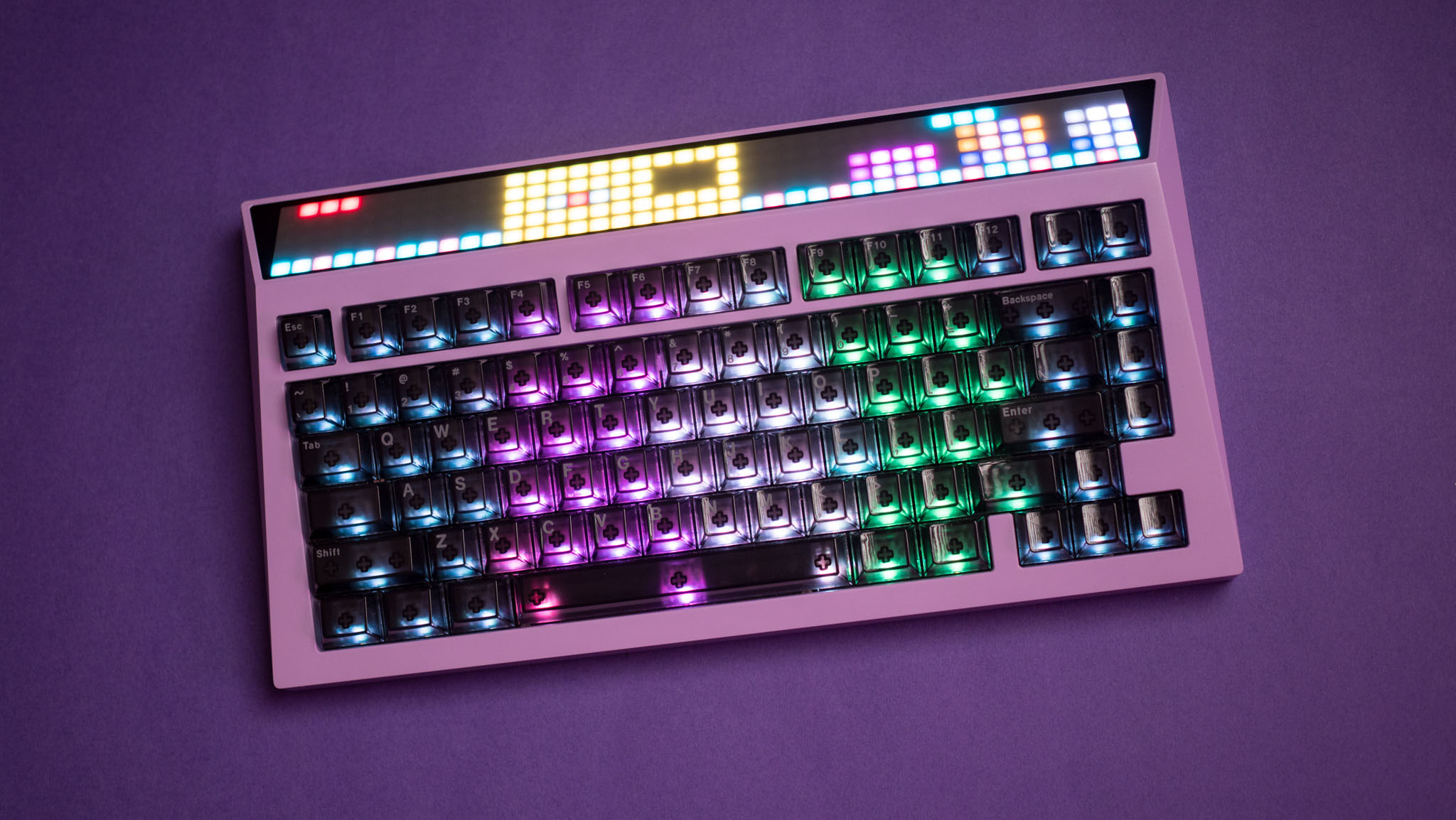
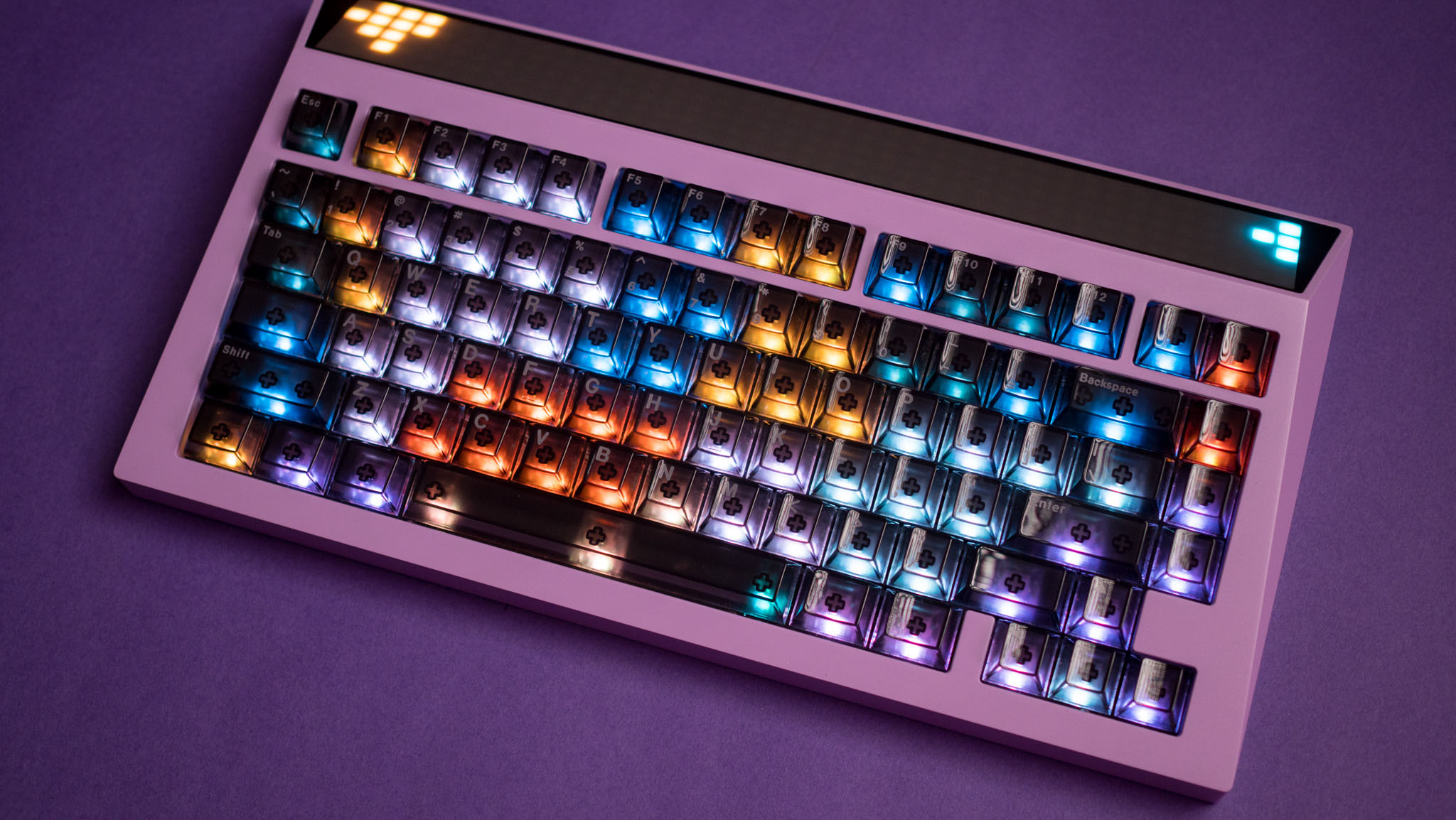
You can also get useful information on the LED matrix panel, including the time and battery charge level. While I left it to a pattern most of the time, it's always entertaining to cycle through all the custom effects available. While the online configurator is easy to use, the same isn't true of AM Master, Angry Miao's software utility. It had issues connecting to the keyboard, and when it did, the changes I made wouldn't take — I had to restart the utility several times to tweak key combos.
Lastly, the Cyberboard R4 has a 10000mAh battery, and it has outstanding battery life. That's a given considering the size of the battery, and even with all the lighting effects enabled, the keyboard lasts well over a week. If you don't want to plug in at all, there's a Qi wireless charging coil on the underside of the keyboard, and you can pair it with a wireless charging mat and never have to use USB-C to charge the keyboard again.
Angry Miao Cyberboard R4: Performance
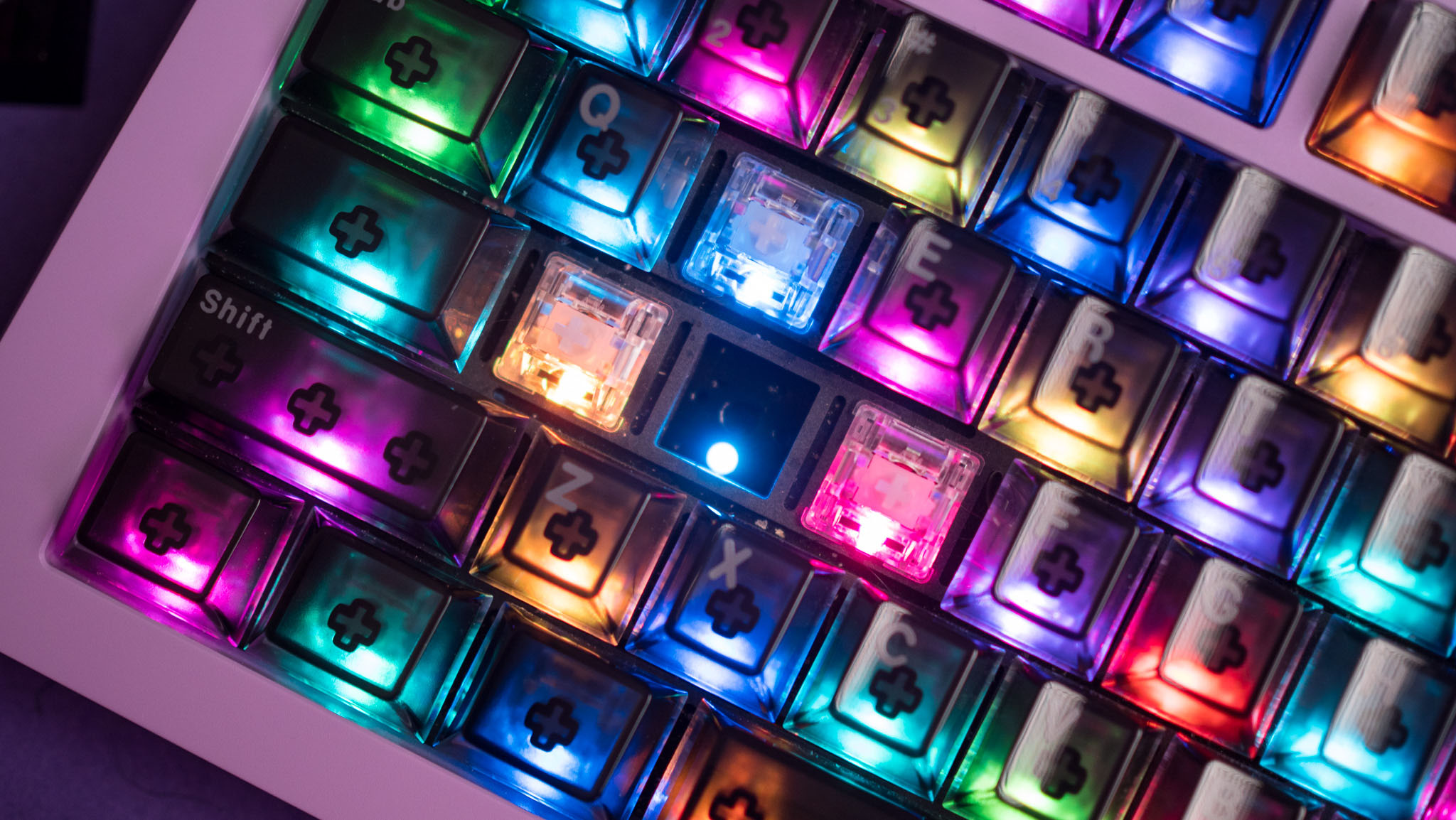
I test a lot of different keyboards and switches, but nothing I've used to date comes close to the typing experience of the Cyberboard. A lot of that has to do with the design of the chassis and the multi-layer foam; it just gives the R4 much better flexibility.
I got the fully assembled kit, including the brand's Icy Silver Pro switches and the Glacier keys, and the combination is terrific. The switch in particular is one of the best linear options around; it is made in collaboration with Tango Works, and uses a Y3 composite stem, and a polished polycarbonate housing that allows RGB lighting to diffuse through.
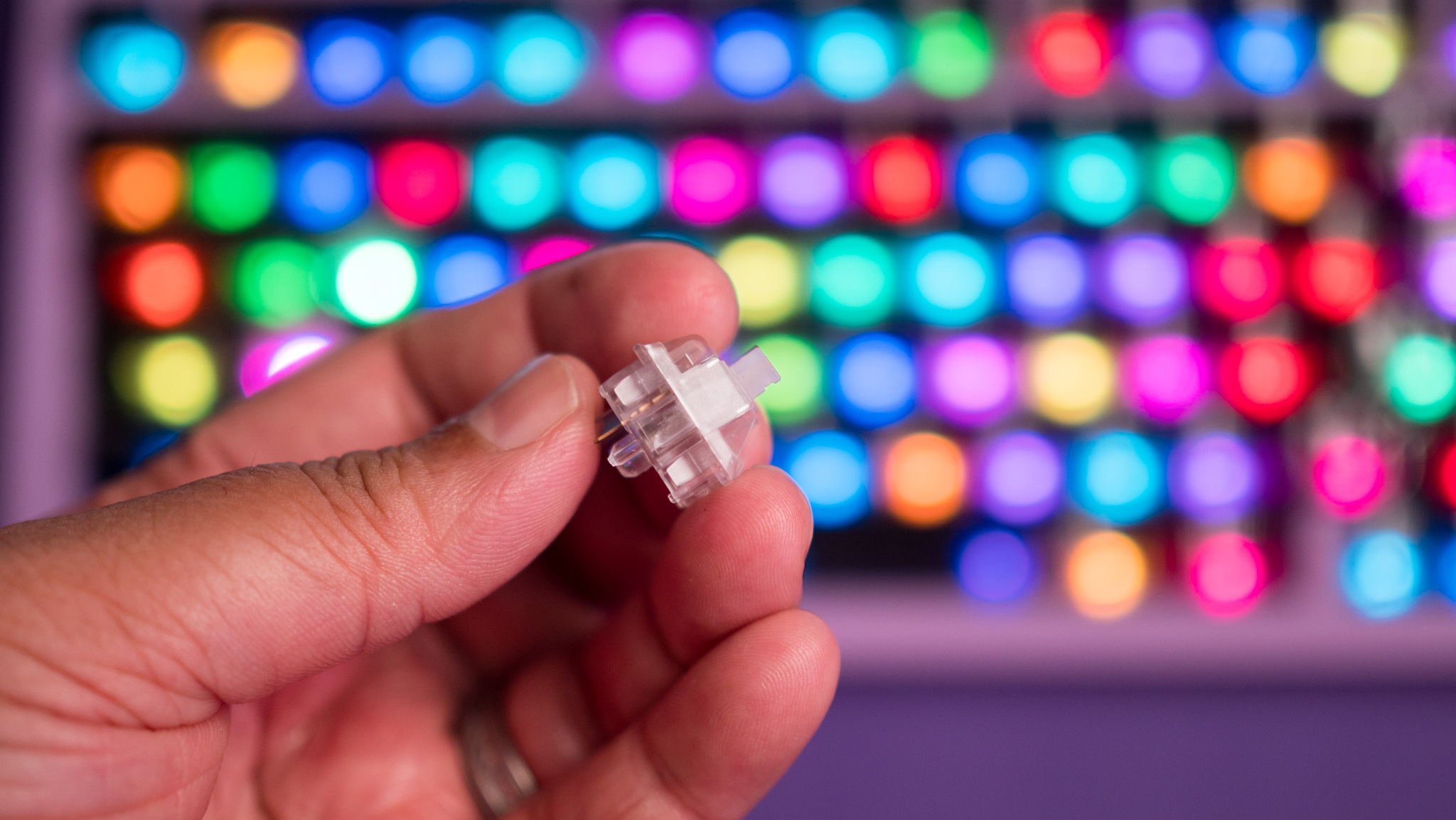



The switch has a 37gf actuation force and bottoms out at 45gf, and while I usually prefer heavier linear switches, the Icy Silver Pro has an excellent feel. The sound characteristic is also among the best of any keyboard, and Angry Miao did a great job creating a buttery-smooth actuation and clean sound that's reserved for the best switches.
The Glacier keys have a see-through design, and that allows RGB lighting to shine. The only thing I don't like about the keys is the glossy coat, but outside of that, they're a solid choice if you want to maximize RGB effects on your keyboard. The adjustable Leaf Spring system also makes a big difference in the feel of the keyboard, and the customizability that you get here is unmatched.
Angry Miao Cyberboard R4: The competition
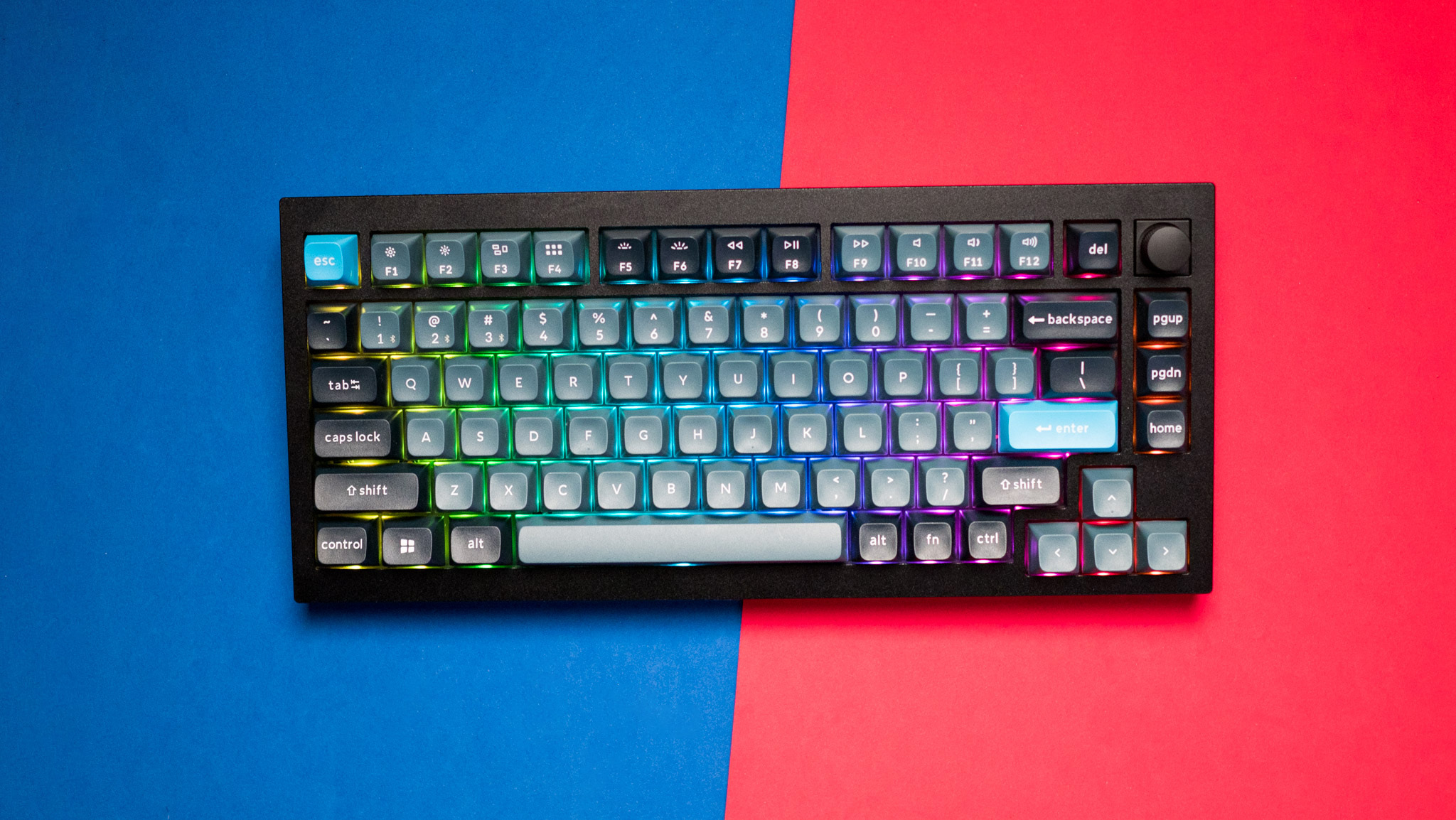
If you just need a good mechanical keyboard with a gasket-mounted design, Keychron's Q1 Pro is a great choice to consider. I used it extensively last year, and it has a sturdy aluminum design combined with a highly flexible gasket mounting system with excellent feedback. It also comes with Bluetooth connectivity and stellar battery life, and at $199, you are getting a good overall value. It doesn't quite have the same feel as the Cyberboard R4, but at nearly a quarter of the cost, that's not a big deal.
And if you want a keyboard that comes close to emulating the feel of the Cyberboard R4, you should take a look at the Mode Sonnet. It starts out at $299 for the base model, but you can customize it to up to $650 with all the extras available, and while it doesn't have the same ostentatious design as the R4, it has the same attention to detail.
Angry Miao Cyberboard R4: Should you buy it?

You should buy this if:
- You want a high-end keyboard with a unique design
- You need the best typing experience
- You want a highly customizable keyboard
You shouldn't buy this if:
- You need a keyboard that gives you good value
Obviously, no one needs a $750 keyboard. There are plenty of great mechanical keyboards available for a fraction of the price that are terrific to use. The key selling point of the Cyberboard R4 is its uniqueness; it doesn't look like any other keyboard out there today, and that LED matrix panel at the back is a lot of fun to use, even if it doesn't contribute anything meaningful to the usage of the keyboard.
The distinctive styling combined with the quality of materials used and the sheer customizability push the pricing of the Cyberboard R4 to the enthusiast segment, and all these features do end up making a difference — the typing experience is significantly better than any other keyboard I used up to this point.
If cost isn't an issue and you're after a unique design, the Cyberboard R4 may just be the keyboard for you. The keyboard is all about making a statement, and it does that incredibly well.

Harish Jonnalagadda is a Senior Editor overseeing Asia for Android Central, Windows Central's sister site. When not reviewing phones, he's testing PC hardware, including video cards, motherboards, gaming accessories, and keyboards.
